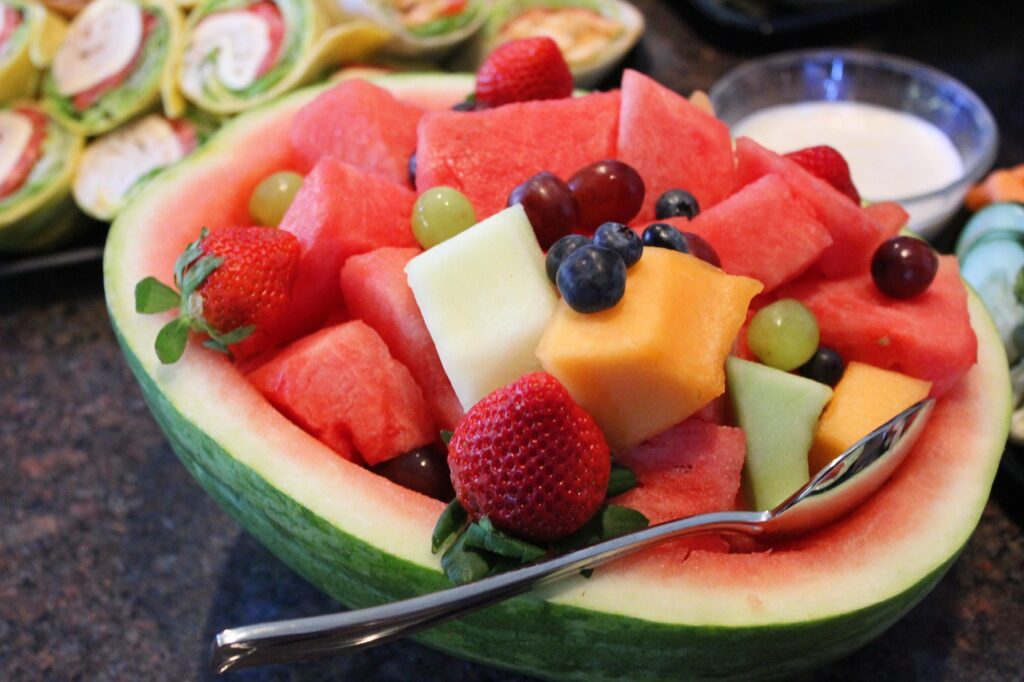We all know that using sunscreen to block the sun’s UV rays is an important step in our skincare routine but did you know that eating the right foods can help to protect skin from sun damage?
Numerous studies and research has shown there is a connection between nutrition, the condition of our skin, and the role of skin aging.
Defend your skin from the sun damaging ultraviolet rays by increasing your fruit and vegetable intake of Antioxidant-rich and coloured foods.
The nutrients in the foods and the coloured pigments such as carotenoids, polyphenols, and anthocyanins for example; make their way into our skin after ingestion and work as a natural sunscreen by absorbing the damaging UV rays that cause sunburn, skin aging, and skin cancer.
UV rays create free radicle molecules in the skin which alter the DNA in the cells, leading to the development of skin cancer, inflammation, and the breakdown of collagen in the skin.
Make it a habit to increase all coloured fruit and vegetables into your diet daily.
5 sun-protective foods to incorporate into your daily diet.
1. Watermelon – This contains a powerful antioxidant called Lycopene which is responsible for the red colour, tomatoes are also rich in this. Lycopene absorbs both UVA and UVB radiation.
2. Blueberries, blackcurrants, and all dark red-purple berries contain antioxidants called anthocyanins which help fight free radicles that damage skin exposed to the sun.
3 Nuts and seeds contain omega 3 fatty acids which help maintain the skin’s integrity and protect against inflammation.
4. Carrots and all leafy greens are rich in beta carotene which gets converted into Vitamin A in our bodies.
Leafy greens contain antioxidants Lutein and Zeaxanthin which have been found to protect against sun damage.
5. Green tea contains a flavanol called EGCG which helps prevent skin damage from UVA light and the breakdown of collagen in the skin.
There is strong evidence from research that shows a Mediterranean diet helps protect skin from the sun’s radiation.
DISCLAIMER: These foods are not a substitute for sunscreen; they help support the health of skin when exposed to UV light.
Did you enjoy this article?
For more inspiration and the latest news and facts – subscribe to our newsletter at the bottom of the website.


